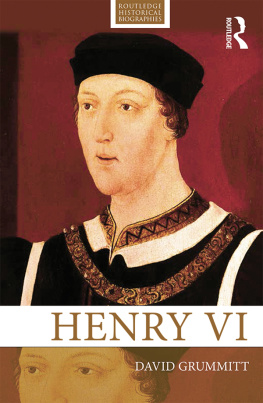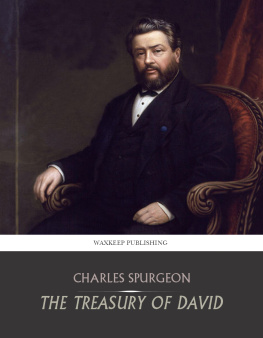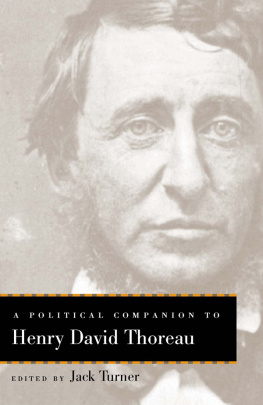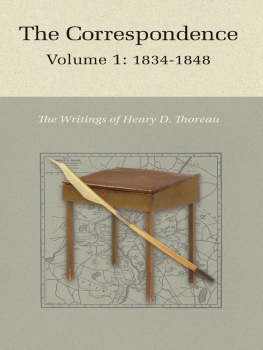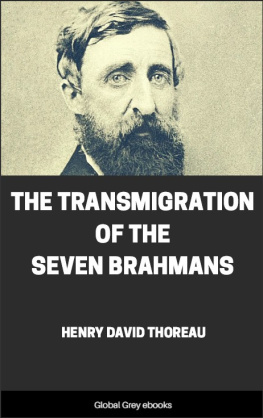LIFE AND TIMES OF DAVID
* * *
CHARLES HENRY MACKINTOSH
*
Life and Times of David
First published in 1898
ISBN 978-1-62013-482-5
Duke Classics
2013 Duke Classics and its licensors. All rights reserved.
While every effort has been used to ensure the accuracy and reliability of the information contained in this edition, Duke Classics does not assume liability or responsibility for any errors or omissions in this book. Duke Classics does not accept responsibility for loss suffered as a result of reliance upon the accuracy or currency of information contained in this book.
Contents
*
Introduction
*
The steps which led to the setting up of a king in Israel are easilytraced, and easily accounted for, by all who have studied with anyattention the humbling history of the human heart, either as presentedin themselves or in others.
In the opening chapters of 1 Samuel we are furnished with a mostinstructive and solemn picture of Israel's condition. The house ofElkanah is taken up by the sacred penman as a striking illustration ofIsrael after the flesh, and Israel after the Spirit. "He had twowives; the name of the one was Hannah, and the name of the otherPeninnah; and Peninnah had children, but Hannah had no children."
Thus we have in the domestic circle of this Ephrathite the earlyscenes of Sarah and Hagar enacted over again. Hannah was the barrenwoman,and she was made to feel it deeply, for "her adversary alsoprovoked her sore, for to make her fret, because the Lord had shut upher womb."
The barren woman is in Scripture the type of nature's ruined andhelpless condition. There is no ability to do anything for Godnopower to bring forth any fruit to Him; all is death and barrenness.Such is the real condition of every child of Adam. He can neither doanything for God nor for himself, as regards his eternal destiny. Heis emphatically "without strength"; he is "a dry tree," "a heath inthe desert." Such is the lesson taught us by the barren woman.
However, the Lord caused his grace to abound over all Hannah'sweakness and need, and put a song of praise into her mouth. He enabledher to say, "My horn is exalted in the Lord; my mouth is enlarged overmine enemies; because I rejoice in Thy salvation." It is the Lord'sspecial province to make the barren woman rejoice. He alone can say,"Sing, O barren, thou that didst not bear; break forth into singing,and cry aloud, thou that didst not travail with child; for more arethe children of the desolate than the children of the married wife,saith the Lord" (Isa. liv. 1).
Hannah realized this, and widowed Israel will ere long realize italso, "for her Maker is her husband; the Lord of Hosts is His name;and her Redeemer the Holy One of Israel." The beautiful song of Hannahis the soul's thankful acknowledgment of God's actings in reference toIsrael. "The Lord killeth, and maketh alive: He bringeth down to thegrave, and bringeth up. The Lord maketh poor, and maketh rich: Hebringeth low, and lifteth up. He raiseth up the poor out of the dust,and lifteth up the beggar from the dunghill, to set them amongprinces, and to make them inherit the throne of glory." All this willbe most fully exemplified in Israel in the latter day; and it is nowexemplified in the person of every one who through grace is raisedfrom his ruined condition in nature to blessedness and peace inChrist.
The birth of Samuel filled up a great blank, not only in the heart ofHannah, but doubtless in the heart of every faithful Israelite whosighed for the true interests of the Lord's house and the purity ofthe Lord's offering, both of which were alike disregarded and trampledupon by the unholy sons of Eli. In Hannah's desire for "aman-child," we perceive not merely the development of the heart of amother, but that of an Israelite. She had, no doubt, beheld andmourned over the ruin of everything connected with the temple of theLord. The dimmed eye of Elithe vile actings of Hophni andPhinehasthe fading lampthe desecrated templethe despisedsacrificeall conspired to tell Hannah that there was a real want,which want could alone be supplied by the precious gift of a man-childfrom the Lord. Hence she says to her husband, "I will not go up untilthe child be weaned, and then I will bring him, that he may appearbefore the Lord, and there abide forever." "Abide forever!" Nothingshort of this could satisfy the longing soul of Hannah. It was not themere matter of wiping away her own reproach that rendered Samuel soprecious in her eyes. No! she longed to see "a faithful priest"standing before the Lord; and by faith her eye rested on one who wasto abide there forever. Precious, elevating faiththat holy principlewhich lifts the soul above the depressing influence of things seen andtemporal, into the light of things unseen and eternal!
In chapter iii. we have the prediction of the terrible downfall ofEli's house. "And it came to pass at that time, when Eli was laid downin his place, and his eyes began to wax dim, that he could not see;and ere the lamp of God went out in the temple of the Lord, where theark of God was, and Samuel was laid down to sleep; that the Lordcalled Samuel." This was very expressivesolemnly expressive. Eli'seyes "dim," and the Lord's call to Samuel: in other words, Eli's houseis passing away, and the faithful priest is about to enter upon thescene. Samuel runs to Eli, but, alas, all the latter could say was,"Lie down again." He had no message for the child. Hoary and dim,he could spend his time in sleep and darkness, while the Lord's voicewas sounding so very near him. Solemn, most solemn warning! Eli was apriest of the Lord, but he failed to walk watchfully, failed to orderhis house according to the testimonies of God, failed to restrain hissons; hence we see the sad end to which he came. "And the Lord said toSamuel, Behold, I will do a thing in Israel at which both the ears ofevery one that heareth it shall tingle. In that day I will performagainst Eli all things which I have spoken concerning his house: whenI begin, I will also make an end. For I have told him that I willjudge his house forever for the iniquity which he knoweth; because hissons made themselves vile, and he restrained them not" (1 Sam. iii.11-13).
"Whatsoever a man soweth," says the apostle, "that shall he alsoreap." How true is this in the history of every child of Adam!howpeculiarly true in the history of every child of God! According to oursowing shall be our reaping. So Eli was made to feel; and so shall thewriter and the reader of this. There is much more of solemn, practicalreality in this divine statement than many are apt to imagine. If weindulge in a wrong current of thought, if we adopt a wrong habit ofconversation, if we pursue a wrong line of acting, we must inevitablyreap the fruits of it sooner or later. May this reflection lead usto more holy watchfulness in our ways; may we be more careful to "sowto the Spirit," that so, of the Spirit, we may "reap lifeeverlasting"!
In chapter iv. a humiliating picture of Israel's condition inconnection with the declining house of Eli is presented. "Now Israelwent out against the Philistines to battle, and pitched besideEben-ezer: and the Philistines pitched in Aphek. And the Philistinesput themselves in array against Israel: and when they joined battle,Israel was smitten before the Philistines: and they slew of the armyin the field about four thousand men." Here Israel was being made torealize the curse of a broken law. See Deut. xxviii. 25. They couldnot stand before their enemies, being weak and powerless by reason oftheir disobedience.


